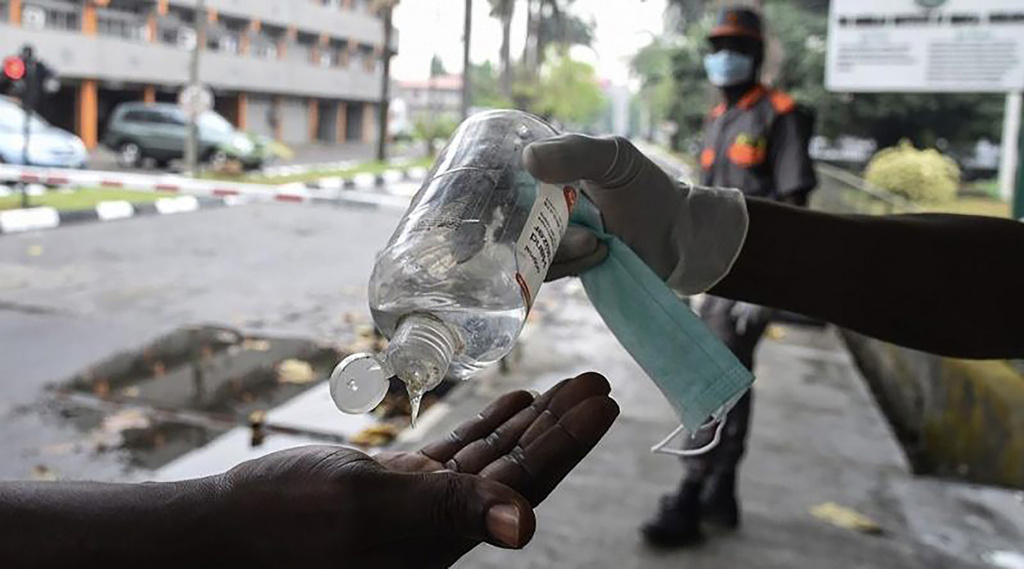Before anyone knew about COVID, a launching ceremony of alcohol-based hand sanitizer was held in College of Health Sciences(CHS) in January. Alcohol-based sanitizer production is a project of the Department of Pharmaceutics & Social Pharmacy at School of Pharmacy, College of Health Sciences, Addis Ababa University. Tikur Anbessa Specialized Hospital’s health professionals and patient attendants will benefit from the distributed product. Dr. Dawit Wondimagegn,Chief Executive Director of the CHS stated that the college would encourage projects that actually can contribute to the betterment of health care. Dr. Dawit further added, alcohol-based hand sanitizer is highly recommended by World Health Organization due to its effectiveness against microorganisms, fast-acting, economic benefits, suitable for use in the resource-limited facility, and has also better acceptability and tolerance by users.
Business owner Kumneger Yishak had already started a business (KSN) to produce cleaning products here in Addis – little knowing that there would be such a surge in demand for Hand Sanitizer. She finds herself and her company extremely busy during this COVID period.
The cost of Sanitizer is 90 etb for 500 ml and 160 etb for one litre.
Her factory is in Samet but you may call or email to order and for further information:
phone number: 251911282135
email :Kumneger201023@gmail.com
Since COVID, Ethiopia’s Ministry of Trade and Industry said that close to 40 companies have begun to produce sanitizer in a bid to curb the coronavirus pandemic. Most of these companies were already producing pharmaceutical products and have now turned their manufacturing line into sanitizer production to satisfy local needs. It is part of the ongoing measures taken by the government to increase sanitizer availability in Ethiopia, said Teka Gebreeyesus, State minister of trade and industry, during a press conference. The government has also distributed over 2.5milion litters of technical alcohol collected from Sugar factories to be used as input sanitizer production. Teka said over 200,000 litters of sanitizers produced by these firms have already been distributed to the public.
The government has temporarily lifted 60 percent excise tax levied on technical alcohol to encourage the availability of the input for manufacturers, he added. The ministry, apart from encouraging factories to produce sanitizers, is taking measures on counterfeit products. “We have seen various counterfeit products in the market,” he said, “and taken measures on some people who were adulterating unknown chemicals to make sanitizers”. This is “really unacceptable both morally and legally”, he added. The ministry has closed over 7000 businesses that have been engaged in illegal business activities since the first COVID-19 case was confirmed in Ethiopia. “The violators will be prosecuted to the fullest extent of the law,” said Teka.

